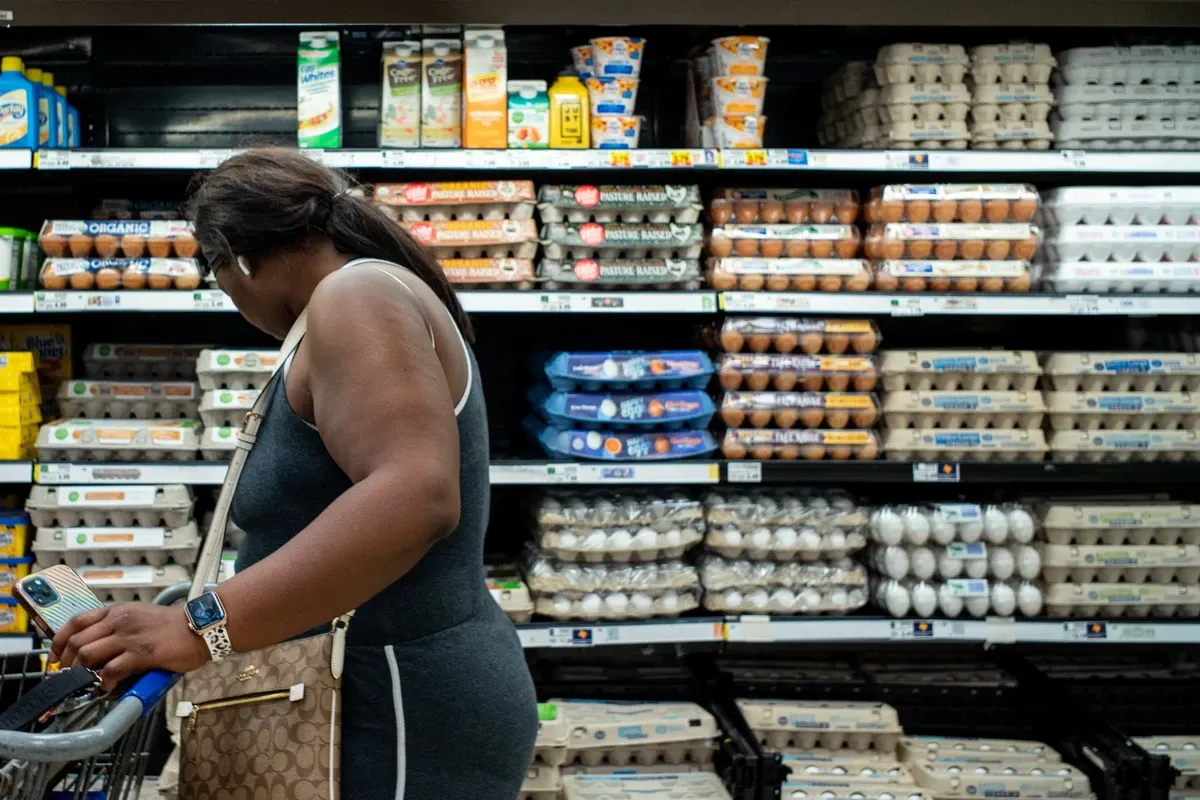Louisiana Families, Marginalized Communities Brace for Rising Grocery Costs Amid Persistent Inflation
Walmart CEO Doug McMillon warned that prices for staples like eggs, dairy, and processed foods are unlikely to return to pre-pandemic levels anytime soon.
As 2025 nears, Louisiana residents are grappling with the lingering effects of inflation, with grocery prices expected to remain elevated. The economic challenges are particularly acute for African American and marginalized communities, exacerbating long-standing disparities in the state.
Grocery Costs Soar Statewide
Food inflation remains a pressing issue, with Walmart CEO Doug McMillon warning that prices for staples like eggs, dairy, and processed foods are unlikely to return to pre-pandemic levels anytime soon. Nationally, food-at-home prices have surged 25% since 2019, according to Consumer Price Index data, and Louisiana’s reliance on fresh, local ingredients makes the state especially vulnerable to these increases.
Meat, poultry, fish, and eggs have seen some of the sharpest price hikes over the past year, straining household budgets across Louisiana. Low- and middle-income families are feeling the greatest pressure in southern parts of the state, where grocery costs are historically higher due to supply chain challenges.
“Prices remain a lot higher than before the pandemic,” McMillon noted, despite Walmart’s efforts to manage costs.
Marginalized Communities Face Compounding Challenges
For African American and marginalized communities, inflation is compounding systemic economic inequities. These households often allocate a larger portion of their income to necessities—such as food, housing, and energy—which have seen the most significant price increases.
A 2024 report found that Black individuals in Louisiana continue to face higher unemployment rates and lower wages than their white counterparts, leaving them particularly vulnerable to inflation’s effects. In addition, extremely low-income renters, disproportionately from marginalized communities, are struggling to afford housing despite some stabilization in rent inflation over the past year.
“The structural inequities in our economy mean inflation hits harder for communities already dealing with wage gaps and limited access to resources,” said a Louisiana Food Bank Association representative.
Economic Ripple Effects Across Louisiana
The rising cost of groceries isn’t just affecting households. Louisiana’s restaurant and hospitality sectors, which rely on affordable food supplies, are grappling with tighter margins. Small grocers in underserved communities face additional pressures, threatening food access in these areas.
Experts warn that economic challenges could worsen disparities unless targeted interventions are implemented. Political movements aiming to roll back policies that have supported Black economic gains, such as “Project 2025,” could further erode progress for marginalized communities.
Outlook for 2025 and Steps Toward Relief
While inflation may ease later in 2025 as commodity prices stabilize, processed food prices are likely to remain elevated. Supply chain adjustments and increased local food production could provide some relief, but experts caution that significant price reductions are unlikely in the short term.
To help families cope, local organizations and policymakers are taking steps to mitigate inflation’s impact:
- Community Support: Groups like the Louisiana Food Bank Association are expanding efforts to assist families in need.
- Policy Measures: Subsidies for agriculture at the federal and local levels aim to stabilize prices for essential goods.
- Consumer Choices: More families are turning to private-label brands, bulk purchases, and local farmer’s markets to stretch their budgets.
Conclusion: A Challenging Road Ahead
Louisiana residents, particularly those in African American and marginalized communities, face a tough year ahead as high grocery costs persist. Addressing systemic inequities and supporting community initiatives will be key to navigating this economic landscape.
For now, families are urged to stay informed about inflation trends, explore available resources, and adopt cost-saving strategies to weather the ongoing financial challenges.







